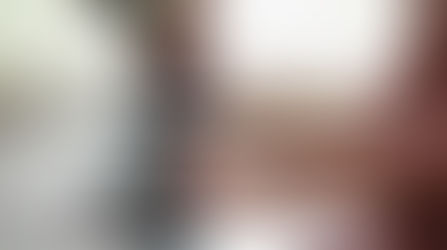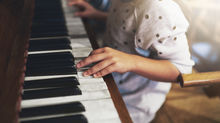🎹 Why Piano Is the Best Instrument to Learn First (and Why It’s Easier Than You Think)
- kyle094
- Jun 6, 2025
- 3 min read

When people ask us at Music Scene which instrument their child — or they themselves — should start with, we usually answer the same way:
Start with piano.
Why?
Because piano is the foundation of music. It’s the gateway to understanding notes, chords, rhythm, harmony, technique, and theory — all in one place. Whether you want to become a musician or just get better at your main instrument, piano lessons make everything in music more clear.
Here’s why learning piano is one of the best decisions a student can make:
🧠 Piano Trains Your Brain Like Reading
Music is built on just seven letters: A, B, C, D, E, F, G. That’s it.Learning how to read those notes on the staff takes just minutes for most students. But learning to read them fast and fluently? That’s where real growth happens.
It’s like reading a book: you start by sounding out each letter, but over time, you can speed-read entire paragraphs. In piano, advanced students learn to read 10+ notes per second — over 600 notes per minute — across both hands, clefs, and rhythms.
That’s why scientists say piano is one of the best activities for brain development. It builds memory, focus, and processing speed — and it makes reading music feel like second nature.
🎶 Technique Can Be Fun — Yes, Really
A lot of people think piano is all about hand positions and finger drills. But what if we told you that some of the best technique training comes from playing your favorite songs?
At Music Scene, our teachers introduce chords right away — because when you know chords, you can play nearly any pop, rock, or worship song. For example:
C Major = C, E, G
G Major = G, B, D
With just four chords, you can play hundreds of songs — no joke.
To build finger strength and technique, we teach arpeggios (playing the notes of a chord one at a time). This turns what could be boring drills into beautiful patterns and progressions that feel rewarding and fun.
🔑 Piano Helps You Learn Any Other Instrument Faster
Learning piano is like learning the Rosetta Stone of music.
You’ll understand bass clef and treble clef, harmony, intervals, and how music is structured. Everything is visual — from whole steps to half steps, to major vs. minor, to key changes. It's all laid out in front of you.
That’s why every music major in college is required to study piano — even if they play flute, trumpet, or voice.
🎹 Join Us at Music Scene for Piano Lessons!
At Music Scene, we believe learning piano should be joyful, exciting, and crystal clear.
Our expert teachers break down each concept and tailor lessons to fit kids, teens, and adults. Every student gets weekly assignments designed to build progress in technique, reading, chords, and creativity.
If you or your child can commit to 30 minutes of practice a day, you can become a confident pianist in two years or less — even starting from zero.
📍 We’re right here in town, and we’d love to help you get started.
📞 Call us, stop by, or message us today to sign up for piano lessons at Music Scene.
🎼 Major & Minor Chords Chart
Major Chords
C Major: C – E – G
C# / Db Major: C# – F – G#
D Major: D – F# – A
D# / Eb Major: D# – G – A#
E Major: E – G# – B
F Major: F – A – C
F# / Gb Major: F# – A# – C#
G Major: G – B – D
G# / Ab Major: G# – C – D#
A Major: A – C# – E
A# / Bb Major: A# – D – F
B Major: B – D# – F#
Minor Chords
C Minor: C – Eb – G
C# / Db Minor: C# – E – G#
D Minor: D – F – A
D# / Eb Minor: D# – F# – A#
E Minor: E – G – B
F Minor: F – Ab – C
F# / Gb Minor: F# – A – C#
G Minor: G – Bb – D
G# / Ab Minor: G# – B – D#
A Minor: A – C – E
A# / Bb Minor: A# – C# – F
B Minor: B – D – F#



























